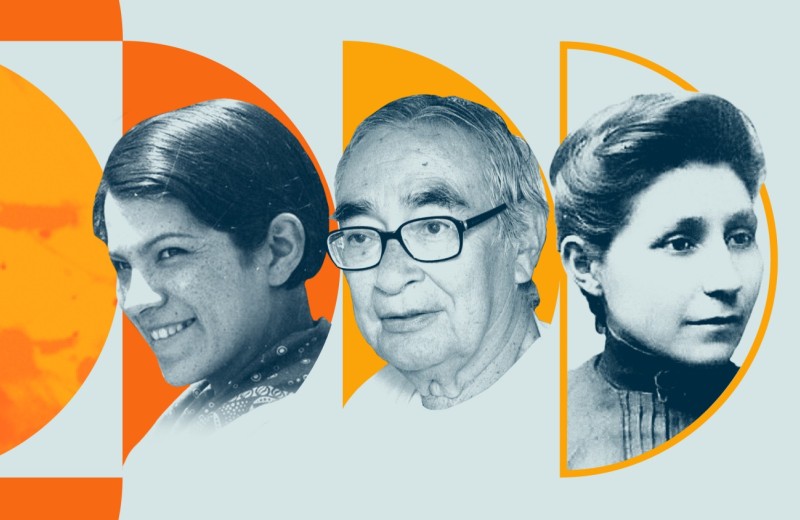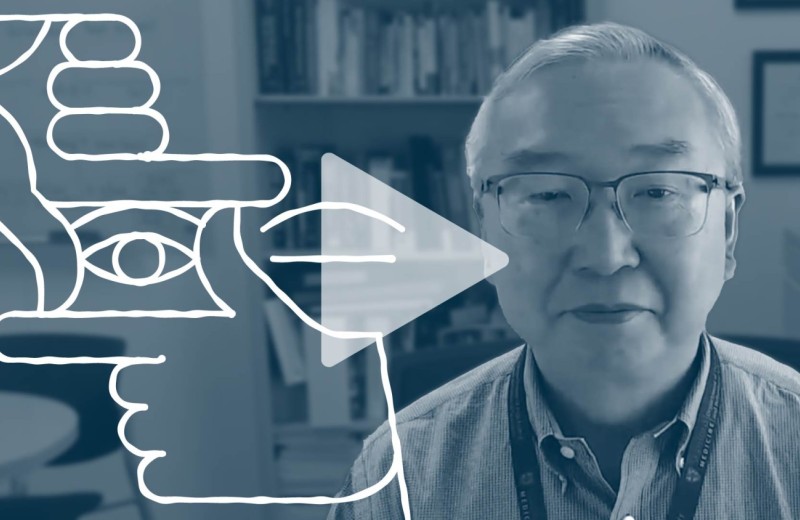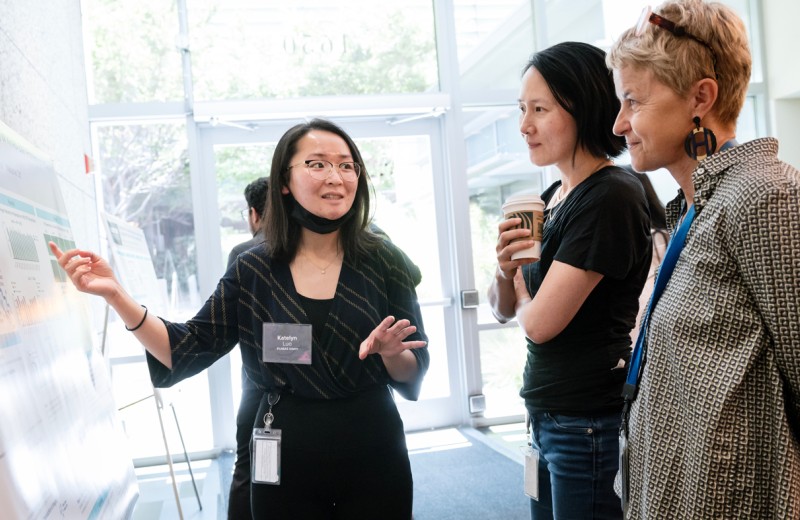Gladstone NOW: The Campaign Join Us on the Journey✕
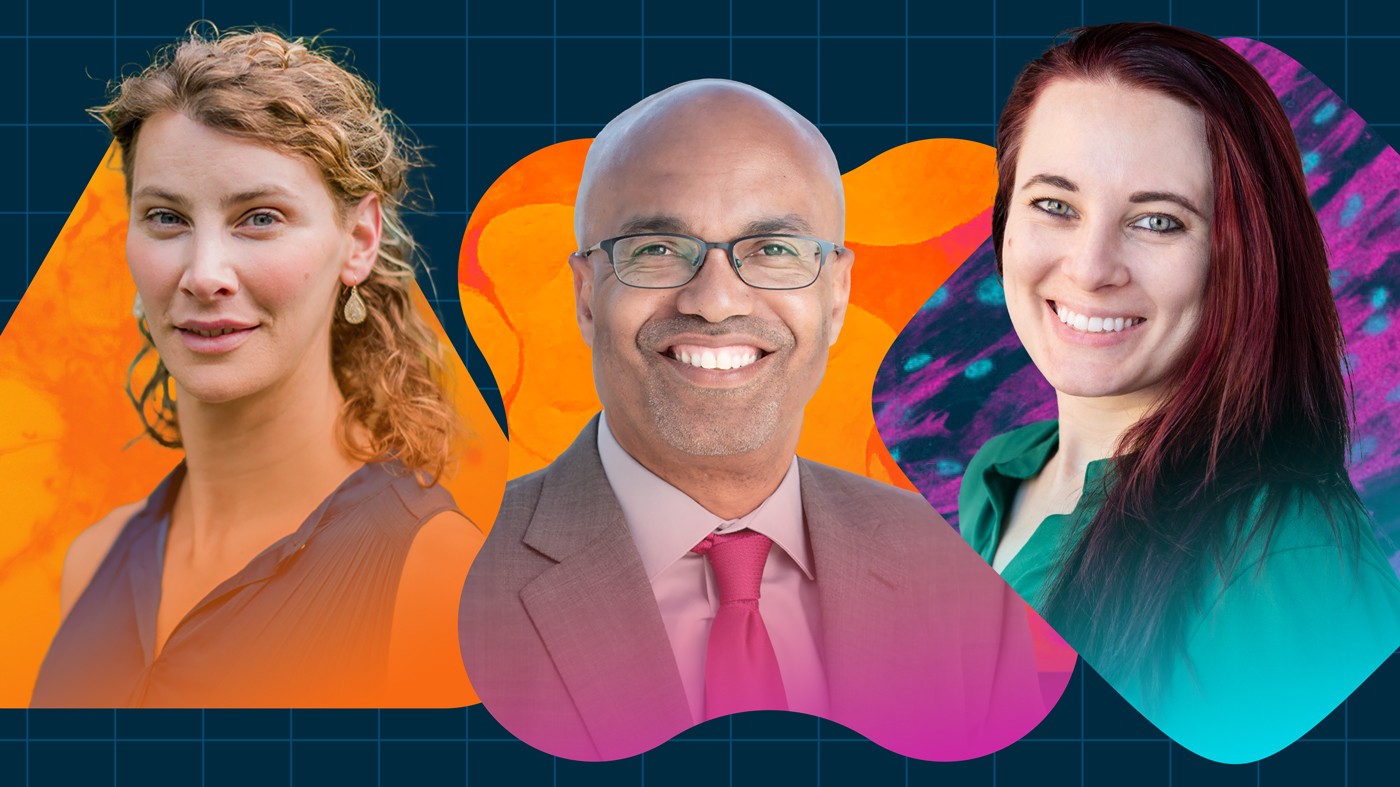
For Pride Month, panelists from Gladstone’s Out in Science event explain why it’s important to be out in science.
Every June, Pride Month is a way to celebrate the LGBTQ+ community, their history, and their accomplishments. In honor of the month, panelists from Gladstone’s Out in Science event explain why it’s important to be out in science, recommend books and films, and discuss ways that organizations can be more inclusive.
Ron Buckmire, PhD (he/him)
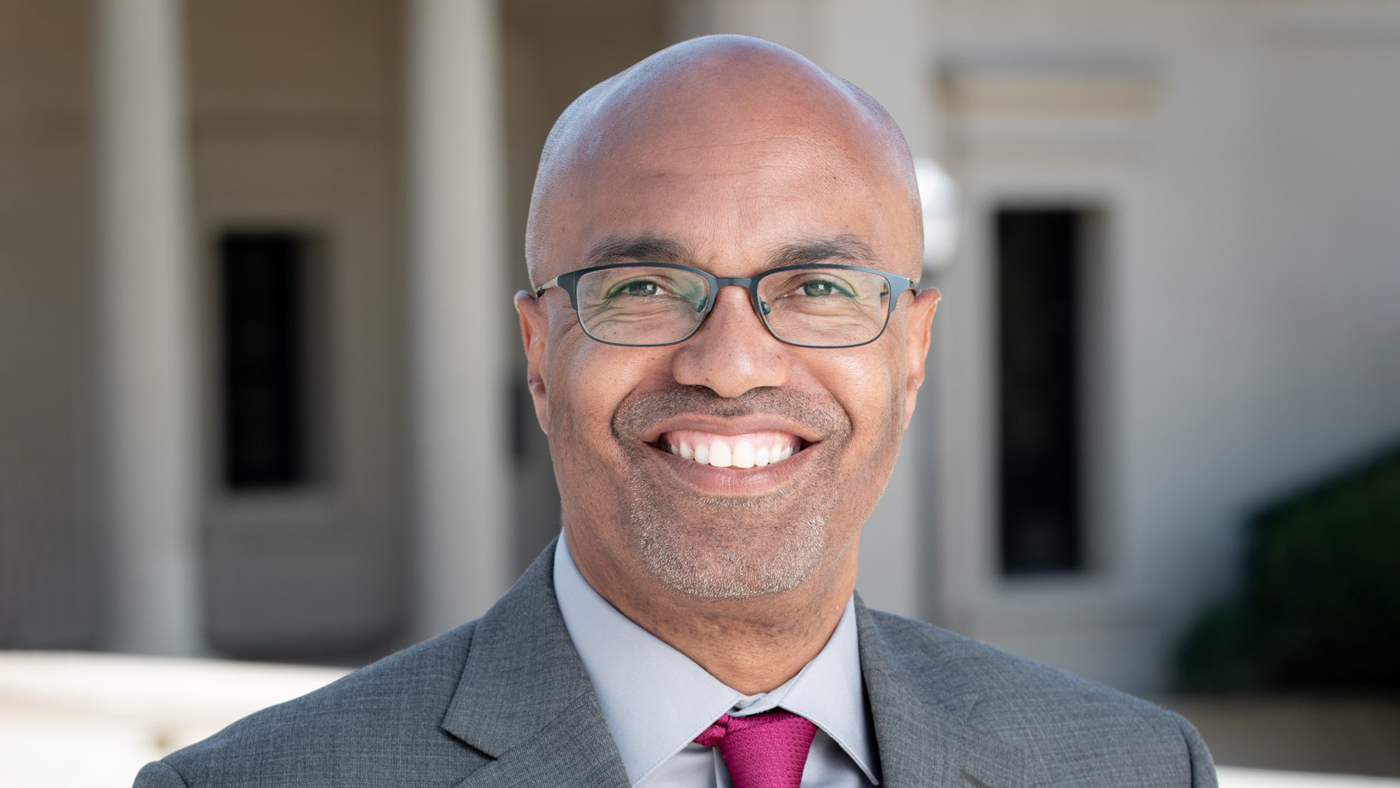
Ron Buckmire is a professor of mathematics at Occidental College.
Why is it important to you to be out in science?
It’s important for me to be out in science because I believe that it is important for anyone interested in doing science to know that there are many different kinds of people who can and do science, to understand that it’s not just old white guys in white lab coats. For example, someone like myself—who was born on a tiny island in the Caribbean (Grenada) and has been in a committed same-sex relationship for over three decades—can also have a significant career in science and mathematics.
Can you recommend a book or film that was impactful to you as a member of the LGBTQ+ community?
I remember being fascinated, impressed, and amazed by the level of detail in the major works of openly gay journalist and author Randy Shilts. Specifically, learning about Harvey Milk in Shilts’s “The Mayor of Castro Street” and the AIDS crisis in “And the Band Played On.” Another work that was incredibly influential on me for its cogent argumentation was the book “The Case for Same-Sex Marriage” by openly gay Yale Law Professor Williams N. Eskridge, Jr.
Films that were very impactful on me are two video documentaries (“Tongues Untied” and “Ethnic Notions”) by openly gay, African American filmmaker Marlon Riggs. “Tongues Untied” depicts the lives of Black gay men and was instrumental in letting me visualize myself as part of the LGBT community. “Ethnic Notions” is a devastatingly brilliant depiction of race and racial stereotypes in American media that should be required viewing in any general education class on information literacy.
What are some unique challenges or opportunities presented to the LGBTQ+ community in today’s digital age?
I think one of the unique opportunities presented to the LGBTQ+ community is the internet itself, and the access to information it provides to all users. In earlier times, LGBTQ+ people often felt “they were the only one” and were isolated geographically, even in places with large populations, largely due to the stigma against LGBTQ+ people being out. Nowadays, everyone everywhere knows that LGBTQ+ exist. There are openly LGBTQ+ United States senators, Academy Award winners, and even Nobel Prize winners. The internet allows access to this information to all people.
Additionally, cell phones and social media allow LGBTQ+ people to interact and connect with others with shared values, interests, and lived experiences to provide support and community, regardless of distance or geography. These are amazing opportunities that science and technology have created that shape our world today.
Bonnie EJ Maven, PhD (she/her, they/them)

Bonnie Maven is a computational biologist at Genentech.
Why is it important to you to be out in science?
Growing up in rural Texas, I had limited exposure to friends and role models who identified as queer. I’m proudly out in science to increase visibility of our existence and needs, and also to be true to myself.
How can organizations create a more supportive and inclusive environment to LGBTQ+ scientists?
Three ways that come to mind are increasing visibility, empowering voices, and creating safe spaces. Even small ways of increasing visibility, such as hanging Pride flags in June, has made me feel more welcome where I work. Also, having an avenue where I can voice my concerns and suggestions to make the workplace more inclusive is critical. Lastly, I enjoy having the opportunity to hang out with other coworkers in places we can relax, even for something simple, like playing board games!
It’s also important to note that many ways of increasing inclusivity in the workplace rely on the organization’s financial and personnel support to provide the best environment for success.
Jamie Lee Twist Schroeder, MD, DPhil (she/her)
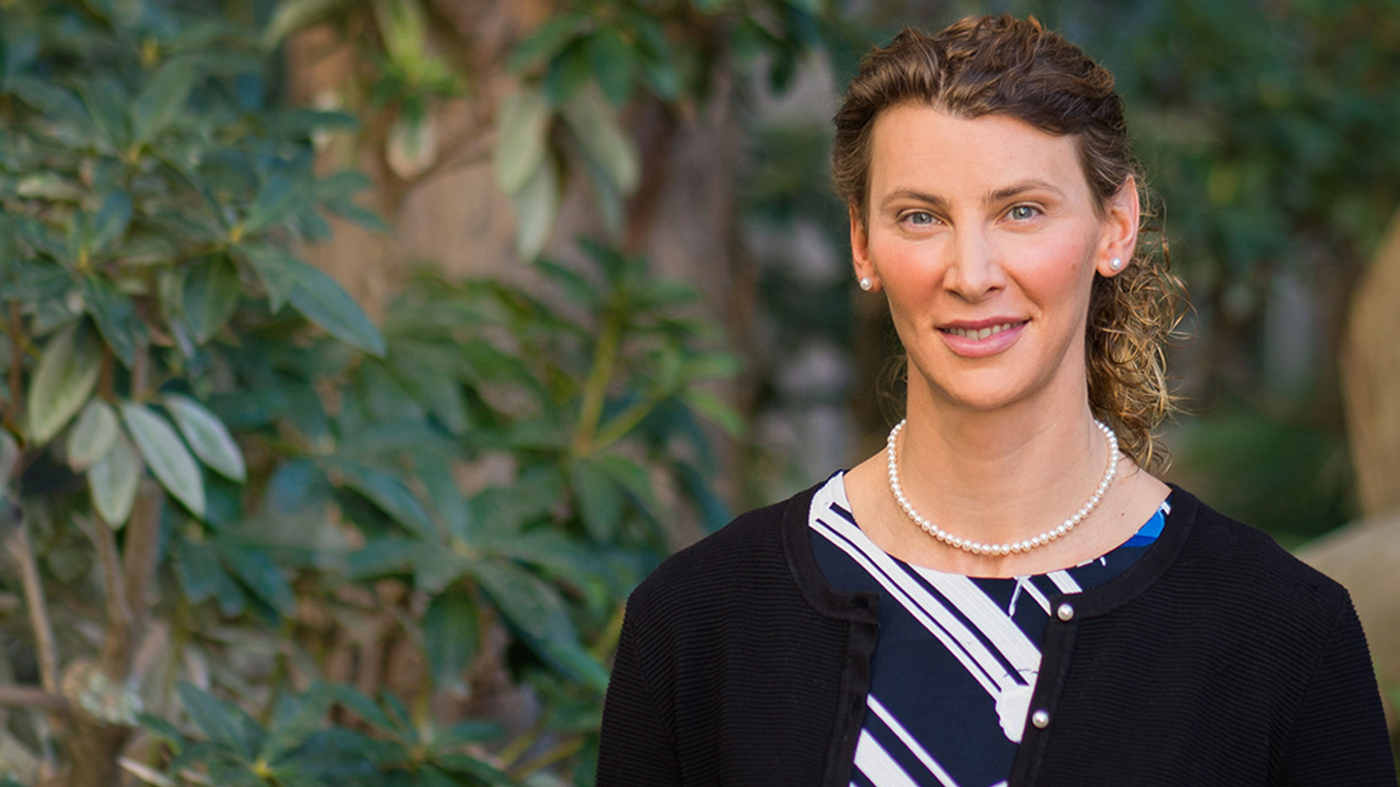
Jamie Lee Twist Schroeder is a radiologist at UC San Francisco.
Why is it important to you to be out in science?
To fight against stereotypes about LGBTQ+ individuals, I think it is important to be out in science and many other careers as well. Being out is important not only to normalize our very existence, but also to establish our presence across a variety of industries and positions.
How can organizations create a more supportive and inclusive environment to LGBTQ+ scientists?
Particularly at a time when pseudoscientific justifications are being used to curtail the rights of transgender individuals across many states and countries, explicit opposition to these types of statements is an important form of support. For example, acknowledgement of the complexity, variability, and plasticity throughout biology, particularly as it relates to sex and gender, is an important counter to the simplistic arguments around binary sex used to advance misguided legislation.
More broadly, institutions can model their own policies to push back against the oppositional sexism that assumes primacy of gender/sex above fundamental human rights and equal opportunity.
Highlighting Native American Scientists
Highlighting Native American Scientists
Learn more about these indigenous scientists who’ve made an impact on their fields
Communications DiversityNeurodiversity in the Workplace
Neurodiversity in the Workplace
Hear about the “Strengths-Based Model of Neurodiversity” and how it can help neurodiverse individuals be successful in finding employment and in maximizing their professional potential
Communications DiversityPUMAS Program Receives Five-Year Grant to Fuel Outreach, Diversify Science
PUMAS Program Receives Five-Year Grant to Fuel Outreach, Diversify Science
The impactful summer internship program, created at Gladstone Institutes, immerses select undergraduates in cutting-edge science
Postdoctoral and Graduate Student Education and Research Development Affairs Student Outreach and Science Education Institutional News Diversity

